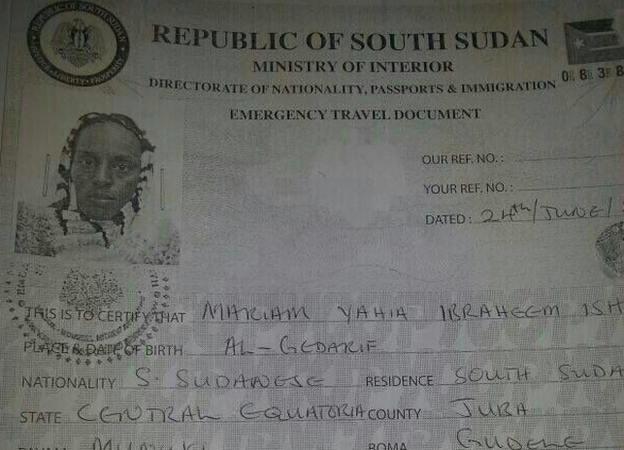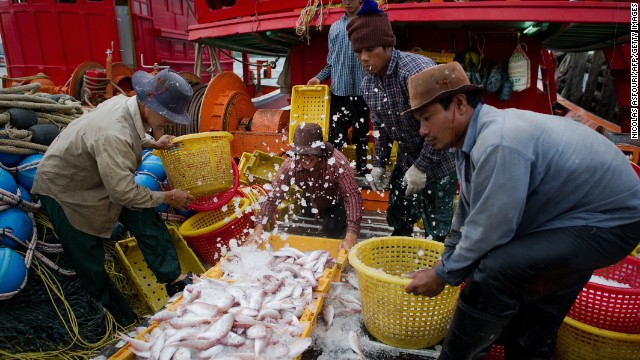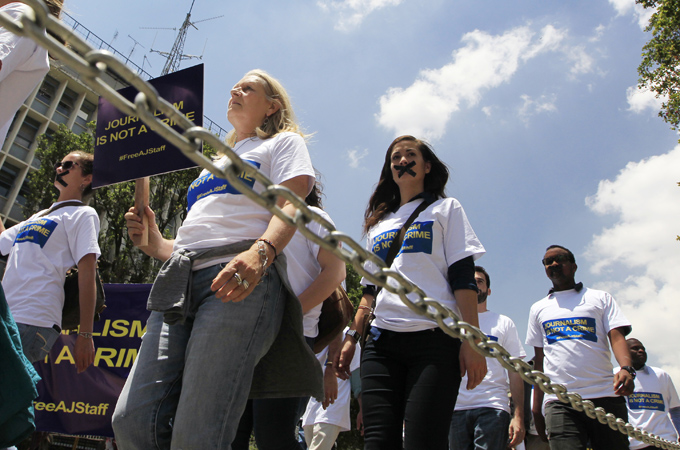
Dear Deeply Readers,
It pains us to report that practically everything we’ve ever told you about Syria now stands to get worse. The global analysis and alarm over the swift conquests of the Islamic State of Iraq and Syria (ISIS) only begin to capture the consequence of what’s happening on the ground.
“Suddenly, the cohesion and integrity of two major countries, not just one, is in question,”said U.N. Secretary-General Ban Ki-moon on Friday.
Earlier that week, U.N. investigators released a report warning that the Middle East is on the brink of wider sectarian war.
“A regional war in the Middle East draws ever closer. Events in neighboring Iraq will have violent repercussions for Syria,” according to the U.N. report.
“Growing numbers of radical fighters are targeting not only Sunni [Muslim] communities under their control but also minority communities including the Shiites, Alawites, Christians, Armenians, Druze and Kurds,” it said.
On Saturday ISIS took control of the Qaim border crossing, enabling its fighters to move heavy weapons more easily between Syria and Iraq. That line between them is beginning to draw comparisons with the Afghanistan-Pakistan border – a porous frontier where jihadi fighters and their operations run out of control. ISIS also captured three other Iraqi towns on the highway from Syria to Baghdad, CNN reports.
“There’s no doubt the border is melting away,” an anonymous U.S. official told the Washington Post.
As ISIS openly pursues its quest to establish an Islamic caliphate over the land it controls, analysts have started to see the emerging ISIS landmass as the statelet of “Syriaq,” as Paul Salem of the Middle East Institute called it.
Bruce Riedel of the Brookings Institution, an expert on global jihad, agrees with that analysis.
“There’ll be a half-state that straddles the Syrian-Iraqi border that might not even have most of the structures of the state. It will be more like a Wild West no-man’s land than anything else,” Riedel told Syria Deeply.
“It will have no oil and very little infrastructure, but it will be a breeding space for terrorists for Syria and Iraq, the region as a whole, and Europe and the U.S. That’s probably what this is going to look like three months from now.”
The White House is deciding how to deal with the Iraq-Syria crisis, which it now sees as a single challenge, the Washington Post reports.
“At a National Security Council meeting this week, President Obama and his senior advisers reviewed the consequences of possible air strikes in Iraq, a bolder push to train Syria’s moderate rebel factions, and various political initiatives to break down the sectarian divisions that have stirred Iraq’s Sunni Muslims against the Shiite-led government of Prime Minister Nouri al-Maliki,” the paper writes.
It is an ambitious list of measures to undertake. President Barack Obama himself laid out a conceptual framework for how to do it.
“The key to both Syria and Iraq is going to be a combination of what happens inside the country, working with moderate Syrian opposition, working with an Iraqi government that is inclusive, and us laying down a more effective counterterrorism platform that gets all the countries in the region pulling in the same direction,” Obama said at a news conference Thursday.
“What we have to do is to be able to build effective partnerships,” he said.
That’s something the U.S. has been unable to do, throughout the course of Syria’s war. The chance that it can do so now, under a more complex set of interests and dynamics, is slim.
While the rise of ISIS solidifies Syrian President Bashar al-Assad’s longtime position – that Syrians face a stark choice between his regime and brutal terrorists – he is also facing the downside of the group’s ascent. Iraqi Shiite fighters are retreating from Assad’s side to wage their own war at home, following a call to arms by their religious leader, Grand Ayatollah Ali al-Sistani. Analyst Firas Abi Ali of IHS Country Risk says the Syrian regime will compensate using manpower drawn from Hezbollah, according to the AP.
The urgency of the ISIS crisis has overshadowed the everyday calamities of Syria’s war – although they remain just as deadly. The BBC filed this heart-wrenching report from western Aleppo, rare footage of the suffering civilians living in the regime-held areas of the city. It showed a moonscape of destruction and civilians forced to drink contaminated water, for lack of a better option.
The government’s aerial siege of eastern Aleppo continued, with the barrel bombing of opposition-held areas – a series of explosives that killed at least 31 people on Monday, AFP reports. In Homs a car bomb hit a majority Alawite area, killing six people.
Further south, near Syria’s Jordanian border, Syrian army helicopters launched their first raid on an internally displaced persons (IDP) camp. At least 20 people were killed, mostly women and children, Reuters reports. Even in the context of a brutal civil war, it was an attack that shocked aid workers and humanitarian groups.
This week the Organization for the Prohibition of Chemical Weapons, the chemical watchdog group overseeing Syria’s handover of banned weapons, said it believes chlorine gas and other toxic chemicals are being used in a “systematic manner.” Opposition groups say that aerial raids, which are launched exclusively by Syria’s army, have unleashed a series of deadly chlorine gas attacks on civilian areas. The OPCW launched a preliminary report on the allegations, but could not present conclusive findings; one of their vehicles came under attack while on the way to investigate the site of an alleged chlorine attack.
While the OPCW monitors the removal of Syria’s chemical weapons, Syria looks set to miss the critical June 30 deadline for the handover and destruction of its chemical stockpile. The U.S. is pushing the OPCW to enforce consequences, though it’s unclear what they would be.
“Syria has deliberately frustrated the council’s efforts to complete destruction by June 30. The council will need to acknowledge that Syria has not met its obligations to remove these dangerous materials so that they can be destroyed,” wrote Robert P. Mikulak, the U.S. permanent representative to the OPCW.
The Assad regime is also being criticized for making it more difficult for U.N. agencies to deliver aid to Syrian civilians.
“What we are now being told is that everything has to be centralized through Damascus,” said Valerie Amos, the U.N.’s emergency relief coordinator. The New York Times quotes Amos as saying that delivering aid “has actually become more difficult, not easier” since June 3, when Assad claimed re-election with 90 percent of the popular vote.
Those conditions have now pushed more than 1 million Syrian refugees into Turkey. The millions of Syrians who have been forced to leave their homes are now part of what’s being called the worst global refugee crisis since World War I.
It is a twist of fate for Syria itself.
“In 2008, it was the world’s second largest refugee-hosting country,” writes the New York Times. “By 2013, it was the world’s second largest refugee-producing country.”
Highlights from Syria Deeply:
HRW Reports Abuses in Syria’s Kurdish Northeast
Syrian Kurds Mobilize as ISIS Moves Weapons into Deir Ezzor
Hopes of Freedom Fade in ISIS-Held Syrian City
Child Slavery on the Rise: A Syrian Mother Speaks of Her Son, Sold Into Battle
One Year After a Massacre in al-Bayda, Residents Remain in Exile
Iraq, Syria and ISIS: Analysts Weigh in on What It All Means
My Syrian Diary: Even Those Who Are Here Are Gone
Headlines from the Week
New York Times: A Glimpse of Syrian Lives Ravaged by War in Homs
Guardian: Up to 400 British Citizens May be Fighting in Syria, Says William Hague
BBC: The Suffering Civilians of West Aleppo
AP: Insurgent Gains Show How Closely Iraq, Syria Conflicts Are Intertwined
AFP: Moderate Syria Rebels Quit Over ‘Lack of Military Aid’
Los Angeles Times: ISIS Aims to Recruit Westerners with Video



